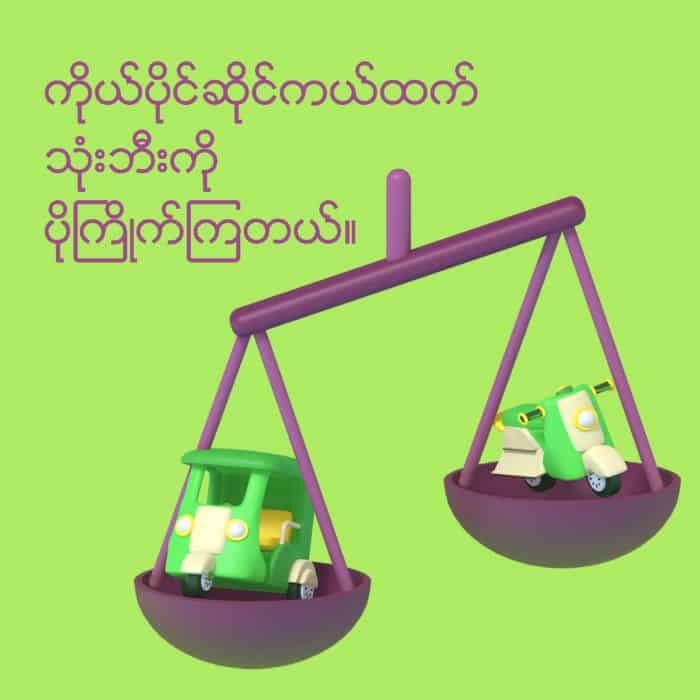Myanmar, you’re all social creatures but who’s the most fun-loving of the lot?
Well, the people of Yangon don’t reserve social outings for just the weekends. Fridays and Wednesdays are the most popular days to go out and spend time with friends.

In Mandalay, the country’s second-largest city, 2 out of 3 residents have a personal motorcycle but many prefer taking a Grab ThoneBane. Drivers of the popular three-wheelers are generally locals who have intimate knowledge of the city, allowing for meaningful conversations and interactions.
Well, these customers are just some of the many people in Southeast Asia whom we’ve had the privilege to serve this year. And from what we’ve noticed, our region is diverse but we’re also quite similar in our habits and way of life.

For example, we all really love bubble tea, with a whopping 5 million bubble teas ordered via GrabFood in 2018. (Talking about sweet, the people of Myanmar definitely have a sweet tooth – 60% of the top 10 GrabRewards redemptions in the country were desserts!)
We also love shopping – at any one time, 1 in 4 of us was on our way to or from a mall!
Here are other ways in which we are #SameSameButDifferent:
Data for good
While it’s fun to look at some of these quirky comparisons from our data bank, the most important use of our data is for a range of improvements to our services and for wider societal impact.
One of the clearest uses of data is to refine and optimise our products for our users. Grab’s analysts study the data, find correlations, build and refine models, in order to make predictions and refinements to our model in each country.
Grab also uses in-house telematics software to monitor driving speeds and patterns. By collecting GPS, gyroscope and accelerometer data from our app during Grab trips, we are able to provide our driver-partners with weekly telematics reports on their driving patterns like speeding, acceleration and braking, so they know where they can do better.
And there has indeed been good results. Data shows that in July 2017, the average number of speeding moments was 0.7 per 100km. By July this year, the figure dropped by 64%. Similarly, the average number of harsh braking and heavy acceleration instances per kilometre decreased by 23% and 50% respectively year-on-year.
But more than using data ourselves, Grab collaborates with cities and governments to solve larger issues such as congestion. We provide our driver location data to the OpenTraffic platform, a collaboration with the World Bank to provide Southeast Asian governments (Malaysia, Indonesia, Philippines) access to real-time traffic information.
We are also now exploring how to use Grab’s data to help governments directly with transport planning, complement unmet demand in transport and map out how car growth affects cities.
